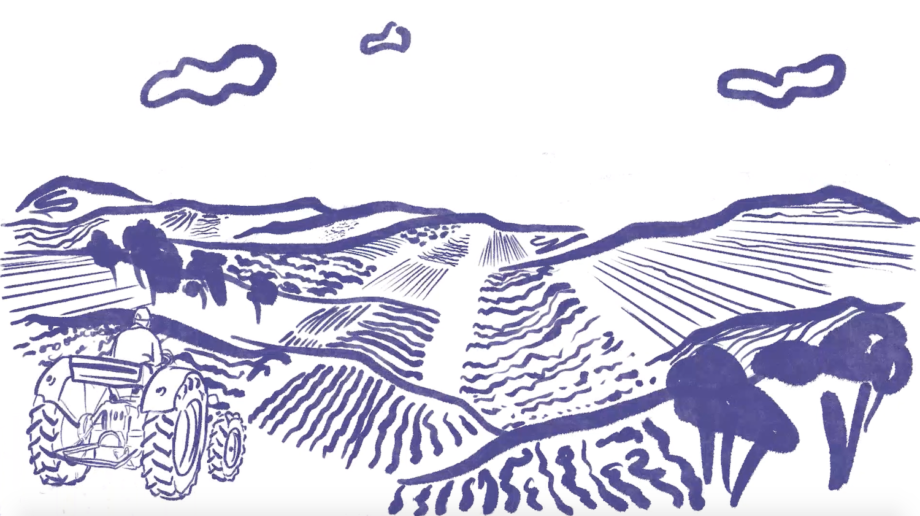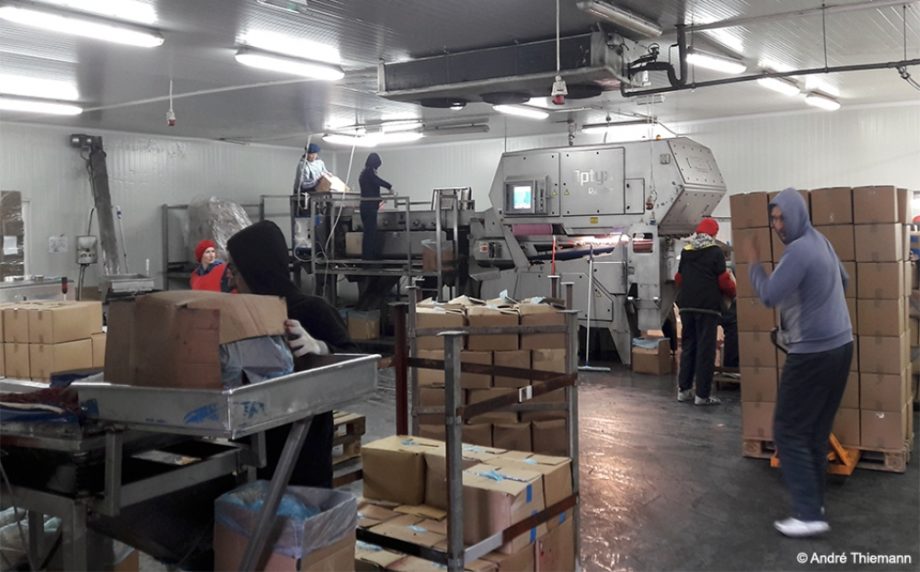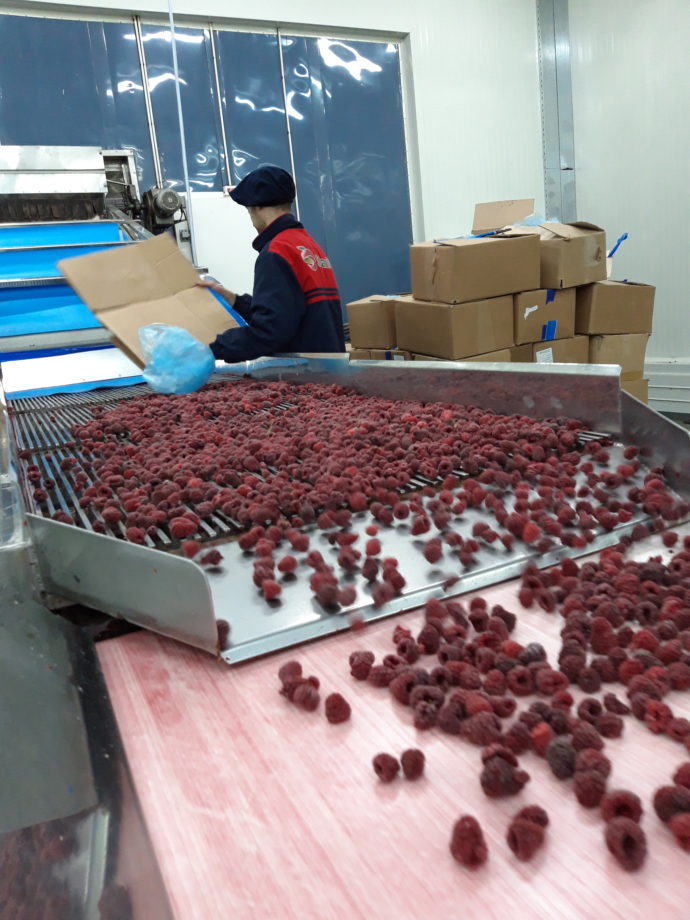Infrastructuring Gens
Materiality, Marx and More-Than-Capitalist Value
The Gens Manifesto gracefully opened a new debate in economic anthropology, a field that since the financial crisis of 2008 had been dominated by studies of financialisation. There, Laura Bear, Karen Ho, Anna Lowenhaupt Tsing, and Sylvia Yanagisako argue that constraining our imagination to trading floors, databases, mathematical formulae, and computing programmes had marginalised an important feminist substantivist tradition that investigated how capitalism generated inequalities in intersection with other hierarchical relations such as race, gender and kinship (Gens §4). Indeed, “conversion devices” (Gens §5) that enable the formalisations of financialisation, or other infrastructures, such as global logistics with its standardised containers, are often represented as the opposite of “intimate relations”: large-scale, maybe even masculinist, technological systems. For example, a collection in Limn, published around the same time as Gens, locates “food infrastructures” exclusively in the conventional “world of ‘Big Food’” (rather than in tightly knit “networks” and “short supply chains” that activists build as alternatives to the food system). In contrast, we suggest in this essay that a focus on infrastructures of value (see our special issue in Ethnos) advances the analytical and political program of the Gens Manifesto.

Still from the Video Abstract to the Special Issue (see also video below)
So how does our approach to infrastructures of value fit into this program of a “Feminist Manifesto for the Study of Capitalism” that criticises those who fail to understand that “kinship, personhood, the household, and social reproduction reside firmly within capitalist creations of value” (Generating Capitalism §2)? We actually find the infrastructure lens useful precisely because it connects otherwise partitioned visions of production, exchange, and consumption. Rather than starting from separate domains, historical ruptures or binary distinctions, our special issue traces how infrastructures enable circulation – both movement and transformation (what Gens calls “conversions”) – across supposed divides. It focuses on how infrastructures of value are also involved in attempts of generating these very separations. For example, we have looked for infrastructure where consumers longed for personal relations with “peasants” and peasant producers proclaimed their own uniqueness compared to industrial genericness. We found winemakers using global logistics’ standardised infrastructures of containment to put “the peasant in the bottle” (Krüger 2023) and professional property appraisers in Australia basing their databases of past sale prices for farmland on not only their expertise in economics but also kinship by excluding “non-economic” transactions between people they identified as close (Sippel 2023). In this way, “kinship measurements” (Thelen and Lammer 2021) that determine financial valuations, access to inheritance, insurance pay-outs, alimony payments and other resources are built into economists’ formalisations and depend on data infrastructures such as bureaucratic archives or gene banks. This shows that distinguishing analytically between conversions “through formalizations” and conversions “through intimate social relations” (§4), as the Gens Manifesto does (and partly in contradiction to its own proclaimed programme), reintroduces dichotomies that prevent us from grasping their productivity in generating capitalism.
* * *
While Gens is explicit about what should be included in any analysis of capitalism, it avoids saying what capitalism actually is. In its thoughtful attempt to avoid “capitalocentrism”, it mentions only accumulation, the production of inequality and the power of capital. But accumulation, inequality, and power are not specific to capitalism. And capitalism is also generated through the production of certain, if limited, forms of equality. We believe it is helpful to define what one takes to be capitalism. And we believe that one can do so without postulating a “singular logic”, “singular origin point” or “overarching logic” of capitalism which the manifesto aptly criticises.
In our reading of Marx, there is an important distinction between social formations and modes of production. (We assume Gens focuses on capitalism as more-than-social formation.) The capitalist mode of production refers to specific generative forces that emerge from private property, market exchange of commodities and wage labour, enabled through the legal equality of market participants. This mode of production would increase inequality even if it existed in its “pure” form and under “ideal” conditions: an infinite material world that is not unruly, humans reproducing exclusively through commodities available on the market, and all kind of differences between humans being irrelevant (except, of course, their differentiated access to the means of production).
While these capitalist forces never exist in pure and ideal form, they potentially come into play whenever people pursue projects of private property, market exchange and wage labour. However, they are not pre-made or pre-existing. They emerge, are activated or made inactive, and are reinforced or counteracted, along with the generative forces that the Gens Manifesto asks us to explore. Significantly, this includes the boundary work involved in pursuing “economic” projects and the relations that cut across such performed boundaries. We take from this that anthropology should trace how capitalist forces emerge materially through practices and interact with other forces in generative ways.
* * *
Infrastructures of value offer a lens for the exploration of these generative forces. In line with other recent combinations of new and historical materialism in economic anthropology, this concept shifts attention to the more-than-human labour that is exploited to reap surplus value. Ethnographic contributions such as How Nature Works (Besky and Blanchette 2019) emphasise the super-exploitation of more-than-human labouring bodies in exhausted and exhausting infrastructures such as tea plantations and factory farms. While staying focussed on the materiality of more-than-human relations, we perform an infrastructural inversion and focus on the work of infrastructuring use and exchange values.
Values that people pursue in “divergent life projects” (Gens §3) often appear abstract and intangible. David Graeber (2001: xii) has argued that value is “the way in which actions become meaningful to the actor by being incorporated in some larger, social totality – even if in many cases the totality in question exists primarily in the actor’s imagination.” Our infrastructures of value approach suggests that these relevant, larger wholes have a material dimension and emerge from practices of infrastructuring such as planning, building, maintaining, and using. Infrastructures undergird value “by connecting people (transportation), separating contents (containment), and communicating qualities (information) that have been evidenced as unique or generic (law and science)” (Lammer and Thiemann 2023: 17).
As “conversion devices” (Gens §5), infrastructures shape value not only through standardising “formalizations” (as in the financialisation of land that is achieved through projections of generic flows of future income, Sippel 2023), but also through singularising “formalizations” (as in the evidencing of unique terroir through standardised procedures, Ana 2023). Capitalism works not only through “erasing particularity” but also producing it (see also Tsing 2015). Even more importantly, we need to let go of the old, naturalistic, anthropological idea that during ethnographic fieldwork we discover “particularities” that are “out there” (Appel 2015). Uniqueness, as much as genericness (note the etymological root: gens!), is produced through infrastructures of value that create links between parts and relevant wholes (Lammer and Thiemann 2023: 11–13).
Although it is difficult to pinpoint all practices that do the infrastructuring of value, some of this work gets singled out and integrated into capitalist or non-capitalist life projects. For example, certification has become a profitable industry, even as activists design alternatives to certain labels based on social science critiques of capitalist agriculture. Still, as information infrastructure both labels and alternative food networks depend on the material properties of specific crops and other infrastructures. Information infrastructures are thus beyond the full control of those who design, build, maintain and use them. And against the visible movement of things, information infrastructures do not simply circulate information about production, but intervene in what is desired and what is produced.
For example, Christof Lammer’s research shows that translating eco-labelling from “the West” to a rice-producing village in Sichuan Province, China, required the creation of a cooperative as a larger organisational unit. Certification of individual farms was not feasible as the existing irrigation infrastructure allowed water (and thus any contaminants) to flow between the different households’ very small rice paddies. However, this cooperative did not place the standard label on the products it sold to organised urban middle-class consumers, who did not trust the state’s eco-certification schemes. Like food activists elsewhere, these concerned consumers feared that ecological premiums based on certification might induce profit-seeking where concerns about health and environment were at stake. Using people as an alternate information infrastructure to communicate the “ecological” quality of food required a stage on which they could perform “personal experience” and “direct links” with “the peasants” regularly. The village’s cooperative therefore continued to grow vegetables even though they were unprofitable and labour-intensive in order to create credibility for its profitable and less labour-intensive rice production. Moreover, performing tightly-knit networks also depended on a highway, tunnels and bridges that enabled day trips between the village and the megacity of Chengdu (Lammer 2023). The modularity of infrastructures allows capitalist and other life projects to connect to them (Lammer and Thiemann 2023: 14–15).
* * *
Gens reminds us that capitalism is configurational, translating values into value, converting living beings into capitalist inventory (Tsing 2015, see also Fischer 2023). But what if the infrastructures for these translations were installed by non-capitalist actors for non-capitalist ends?
One day in September 2019, André Thiemann took a break in the office of the production manager of Stanić Ltd. in Arilje, Serbia. The company owned “one of the biggest cold stores in the Balkans” and exported 20,000 tonnes of raspberries each year. When the product quality and safety manager, Zagorka Vujović (an invented name), entered the office to file a document, she joked about how often the name of her employer had changed in her thirty-three years of employment even though she had mostly remained in the same job.

“Mining value”: a post-socialist cold store during peak-harvest
Ms Vujović’s work history follows the infrastructural continuities and transformations that made Serbia a leader in the global value chain of raspberries (Thiemann 2023). From 1986, she worked as technician, freezing fresh raspberries at the Jedinstvo cooperative. At that time, the cooperative’s agronomists were expanding the area planted with raspberries by 100 hectares a year. They did this by contracting with hundreds of semi-subsistence farmers and limiting each to 0.1 hectare per household member rather than through violent land grabbing and large-scale plantations. Jedinstvo’s agronomists introduced specific pruning methods, an espalier technique that turned the landscape into “raspberry country” as well as a quality-grading system for fresh fruit. Every day, the delicate berries were transferred to Jedinstvo’s state-of-the-art freezing infrastructure, where they were transformed into storable and transportable commodities.
During the post-socialist privatisations of the 1990s, Ms. Vujović remained in the cold store, becoming responsible for export certifications. The other parts of the cooperative quickly faltered and agronomic quality control and scale limitations became deinstitutionalised. Expanded, labour-exploiting plantations began producing higher quantities of lower-quality. Twenty years later, in 2012, the cold store also filed for bankruptcy. Ms. Vujović was soon hired as a product quality and safety manager by Jedinstvo’s biggest competitor, Stanić Ltd. In 2019, when Stanić Ltd. bought and repaired the cooperative’s former compound as its new headquarters, she returned, and lovingly furnished her office with old equipment from Jedinstvo that she found in the attic. As is not unusual in capitalism, a major competitor had cannibalised a shredded infrastructure of value, partly revitalising and partly transforming it: Stanić Ltd. added new modules to the cold chain, such as laser sorting and grinding technologies. Today, Serbia produces five times more raspberries than during socialism and its harvest affects world market prices.

“Serbia’s red gold”: frozen, self-contained raspberries
This story shows how what appears as capitalist enterprise has socialist roots. Due to their materiality and their modularity that resist top-down control, infrastructures, such as the export-enabling cold chain, tend to persist “beyond spectacular ruptures at the level of events and compelling narratives of distinction and radical change” (Lammer and Thiemann 2023: 13). The infrastructural modules generating raspberries for the global market had been assembled by a socialist cooperative in collaboration with semi-subsistence farmers and redistributed considerable wealth even when the infrastructures were later captured by capitalist competitors.
* * *
Like the Gens Manifesto, looking at infrastructures of value directs our attention beyond the usual suspects that populate critiques of capitalism – capitalists and workers – to the undergirding work of non-human beings (roads, cold stores and refrigerated cars, bottles and labels, vineyards and yeasts, plants and animals, economic models and social science concepts) and experts (not only engineers, but also natural scientists, agronomists, and social scientists). This “plethora of human and non-human beings from different times and places” is involved in the infrastructuring of value, both in “abstracting” projects of capitalism and “concreting” projects of resistance and alternatives. Therefore, whether it is financial profit or justice, solidarity and sustainability that is pursued in these projects, “coherence is easier to maintain for imagined values than for infrastructured value” (Lammer and Thiemann 2023: 18). Infrastructuring Gens means uncovering often overlooked practices that materially shape value by generating relevant, larger wholes without ever being in full control. Untangling the meshwork of infrastructured value may not be able to offer clear visions for post-capitalist futures. But it offers glimpses of a present that is always already more-than-capitalist.
Bibliography
Ana, Daniela. 2023. “Nature’s Value: Evidencing a Moldovan Terroir Through Scientific Infrastructures.” Ethnos 0 (0): 1–16. https://doi.org/10.1080/00141844.2022.2163274.
Appel, Hannah. 2015. “On Simultaneity.” In Generating Capitalism, Cultural Anthropology website.
Besky, Sarah, and Alex Blanchette, eds. 2019. How Nature Works: Rethinking Labor on a Troubled Planet. Santa Fe: University of New Mexico Press.
Fischer, Edward F. 2023. “Infrastructuring Value Worlds: Connections and Conventions of Capitalist Accumulation.” Ethnos 0 (0): 1–11. https://doi.org/10.1080/00141844.2023.2180064.
Krüger, Oscar. 2023. “Peasant in a Bottle: Infrastructures of Containment for an Italian Wine Cooperative.” Ethnos 0 (0): 1–16. https://doi.org/10.1080/00141844.2022.2163273.
Lammer, Christof. 2023. “Valuing Organics: Labels, People, and the Materiality of Information Infrastructure in China.” Ethnos 0 (0): 1–20. https://doi.org/10.1080/00141844.2022.2163272.
Lammer, Christof, and André Thiemann. 2023. “Introduction: Infrastructuring Value.” Ethnos 0 (0): 1–24. https://doi.org/10.1080/00141844.2023.2180063.
Sippel, Sarah Ruth. 2023. “Infrastructures of Farmland Valuation in Australia.” Ethnos 0 (0): 1–18. https://doi.org/10.1080/00141844.2022.2163275.
Thelen, Tatjana, and Christof Lammer. 2021. “Introduction: Measuring Kinship, Negotiating Belonging.” Social Analysis 65 (4): 1–22.
Thiemann, André. 2023. “Infrastructuring ‘Red Gold’: Agronomists, Cold Chains, and the Involution of Serbia’s Raspberry Country.” Ethnos 0 (0): 1–23. https://doi.org/10.1080/00141844.2022.2163271.
Tsing, Anna. 2015. “Salvage Accumulation, or the Structural Effects of Capitalist Generativity.” In Generating Capitalism, Cultural Anthropology website.
Christof Lammer is a Postdoctoral Researcher in the Department of Science, Technology and Society Studies (STS), University of Klagenfurt. Trained in social anthropology and Sinology at the University of Vienna, Tianjin University, and Renmin University, in his PhD project he examined how boundaries between state, civil society, and kinship were performed in rural development and participatory bureaucracy in an ecovillage in China. Combining his interest in political and economic anthropology, kinship studies, and STS, his current projects ask how measurements and infrastructures are intertwined with belonging and value. He co-organises the DFG Network “Anthropology and China(s)” (2021–2025) that reconsiders regional anthropologies.
André Thiemann is a Postdoctoral Fellow at the Institute of Ethnology, Czech Academy of Sciences, in the ERC-funded BOAR project (2020-2025). He previously held fellowships at the Center for Interdisciplinary Research ZIF Bielefeld and at the Institute for Advanced Studies in Budapest, was Visiting Professor of Social Anthropology at CEU Budapest and worked as Visiting Lead Researcher at Riga Stradiņš University, leading the project ‘Comparing vital capitals: An anthropological analysis of the global value chains of sea buckthorn and raspberries’. His research addresses central problems of the anthropology of the state at the intersection of political ecology, economy and multi-species care.































